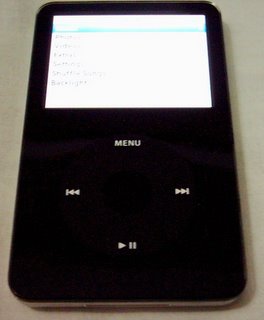Trip to Delhi, Noida , Meerut and the Re.1 Air Ticket
I took leave on Friday from the office which is no big deal keeping in mind the work I have. Also the highlight of this trip is my Re. 1 ticket. You are right and I have not mistyped in any way. Re 1 Air Ticket courtesy one and only Air Deccan. It was a great moment when I got the Re 1 ticket because I had booked the earlier ticket for Rs. 3995 so this comes out to be dirt-cheap. The flight was at morning 6:00 am so the last night’s sleep was reduced to only 3.5 hours keeping in mind my daily schedule of sleep.
In the flight, close to my seat there was a lady sitting. She should be in her 60s, as I believe. She was part of the marriage party, which was traveling from Hyderabad to Delhi, but she was unaware of the price of the ticket. So she did the mistake of asking me the price of the ticket and when I told her that it is Re. 1, she went into a shock. I thought she would get heartache there but somehow she controlled the excitement. The journey was smooth, the flight being an AIRBUS unlike an ATR, which Deccan usually operates in other routes.
I reached Delhi at 7:40 itself 10 minutes before the scheduled time of 7:50. View of Lotus Temple from a very high elevation was very good. The autowallahs of Delhi are not better than the Chennai autowallahs because the Chennai ones are really worst of all. I believed one autowallah and asked him to drop me to bus stop where I can catch a bus to Noida. But this crooked autowallah dropped me in RK Puram which was close to 7 Km from Nehru Place where I will get the buses to Noida. So after waiting for close to 45 minutes in RK Puram, I asked one gentleman about the bus to Noida. Pat came the reply: No buses from here go to Nehru Place and catch from there. So I took the bus to Nehru place and then from there got into a Bus to Noida making another mistake here. I did not remember the sector which shetty said to me and just got into the bus asking him whether it would go to Sector 26 or not. The bus drivers in Delhi have this problem. Even if your stop is close to 2 KM from the place where from the bus passes, the bus conductor will tell you that he is going to drop you exactly the place you want to get down to. So somehow after struggling for close to 1 hour in the bus, I got down at Kailash Hospital and met shetty and then reached his house.
Shetty’s flat is good much better when compared to the flats of the rest of my batchmates. In the afternoon then we had the delicious lunch typical Delhi types. I slept in the afternoon for about 2.5 hours and in the evening then Raj and Venkat joined us. We had booked a Taxi to Meerut. We started our journey to Meerut at about 6:25 from Noida. It took us close to 3.5 hours to cover the 67 Km stretch, which is by all standards very high even in the worst of the traffic jams. The main trouble was to locate the hall in the town. Somehow we managed to reach the hall and met both Shanbag and Tandon for the first time after Convocation.
Souveer’s Marriage was one big event. The food was exquisite covering all the possible varieties one can think about. Right from Chat Items, Dosas, Variety of Curries, Rice Items and Desserts, it had all the ingredients to satisfy anyone. We did not have dinner to the extent we should have had but then it was all about meeting Souveer rather than having food or drinks. The marriage ended at about 2:30 am in the morning and Souveer looked very much satisfied and elated. We started back for Noida from Meerut due to some unforeseen events and reached Noida at about 3:55 AM. The weather was really cold out there; temperature was in single digit as far as I could make out. Then the baker session was on for us from 4:00 till 6:00 and then we slept at about 6:15 in the morning. Fully tired.
In the morning we went out to have the staple breakfast of Delhi. Chole bature. Oh god they were amazing really. The last time I had Chole Bature was in April 2004. So this was a good break for me. In the late morning also some good news landed for me. Afternoon we went to the Noida Market for some time pass. Had lunch at McDonalds.
Evening I started back for the NDLS from Noida and saw the majestic structure of Akshardham Temple. The site was magnificent and really pleasing to the eyes. The train’s departure was at the scheduled time but the rush was too much. My co-passengers were carrying so much of luggage that it literally blocked the way to get out of that cabin. The characters in the compartment were really fascinating and describing them here would take pages. Notable was the 7th class school going kid. He ensured all the 25 hours of the journey that no one is able to sit on his Window seat and his mother, do not even ask.
This trip goes as one of the most memorable ones in the recent past.




